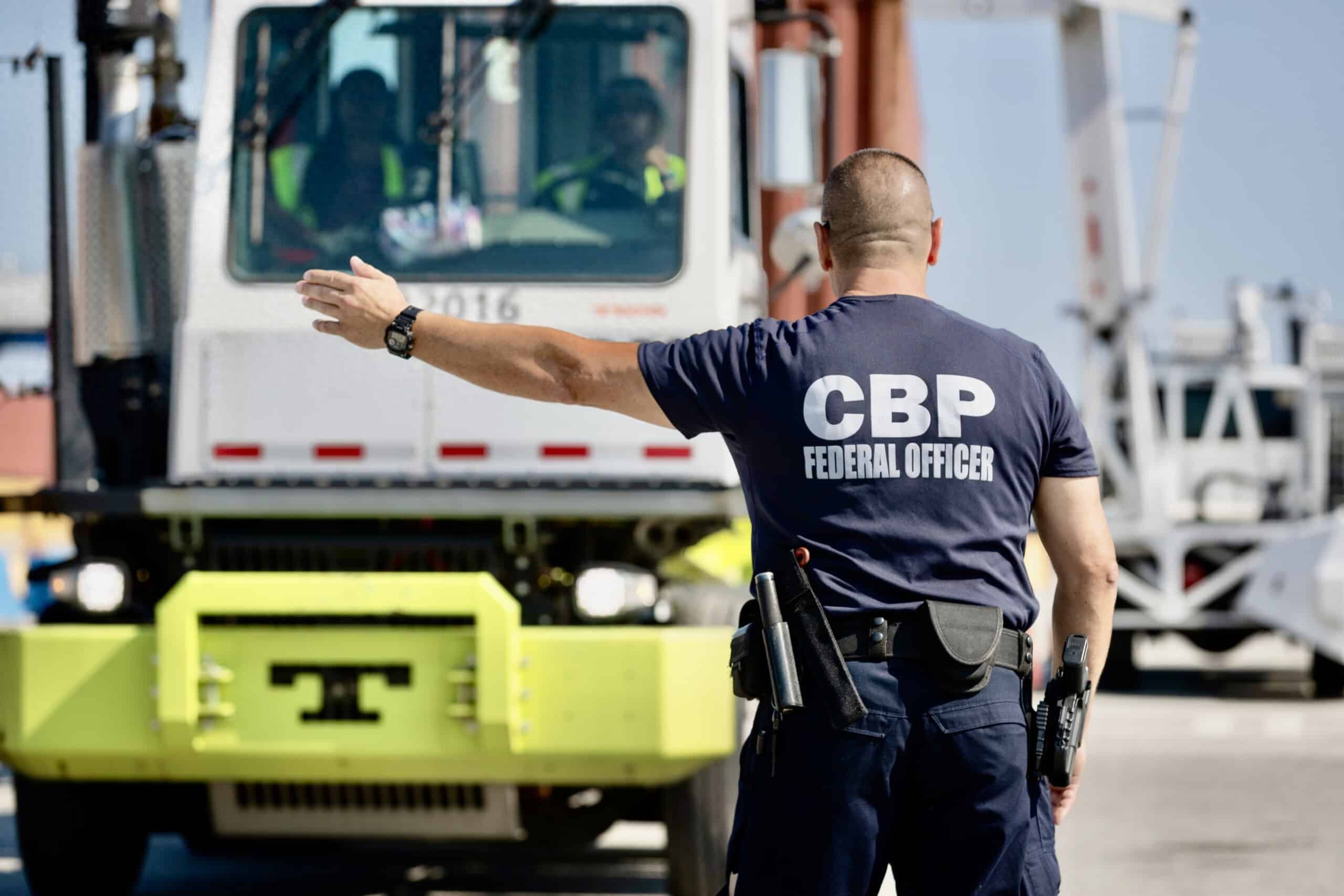Bloomberg reported that as the US government faces a potential shutdown on September 30, the Department of Homeland Security (DHS) said that tariff collection would continue even during the shutdown.
On September 27 local time, a document published on the official website of the US Department of Homeland Security showed that most of its security and tax collection operations would be considered "essential functions" and continue during the shutdown.
The Trump administration has significantly increased tariffs on various imported goods in the United States and claimed that tariff revenue is a key means to reduce the federal budget deficit. The Department of Homeland Security stated in the planning document that even if funding expires, the US Customs and Border Protection (CBP) will continue to carry out tariff collection work.

US Customs and Border Protection officials are conducting non-intrusive inspections of containers. US Customs and Border Protection
In addition, the Department of Homeland Security has the Immigration and Customs Enforcement (ICE), which is the core department for the Trump administration's efforts to strengthen immigration enforcement. Regardless of whether the temporary spending bill passes, all immigration enforcement work by this department will continue.
According to this planning document, nearly 258,000 of the Department of Homeland Security's 272,000 employees will be classified as "essential personnel" and remain on duty during the shutdown. This number is higher than the number in the planning document released by the department last year, when the total number of employees was 7,000 fewer than now.
US federal government funds will run out at midnight on September 30. If the two parties still cannot reach an agreement on the relevant appropriation bill by then, some government agencies will face a shutdown, which will be the first shutdown of the US government since 2019.
Over the past few decades, in typical US government shutdowns, about 60% of federal employees were considered essential and continued to work. The rest were defined as non-essential federal employees, who did not need to work temporarily and were not paid wages until the shutdown ended.
Bloomberg pointed out that this government shutdown may be more severe than any previous one. It will be the first government shutdown since the Obama administration that starts with a fiscal year, quarter, or month, and the US Congress has not passed any appropriation bill to provide funding for specific agencies.
At the same time, President Trump is increasing pressure, threatening to permanently fire "non-essential" government workers whose positions have not received funding support, rather than temporarily furloughing them. On September 24 local time, the White House had already instructed federal agencies to prepare layoff plans to carry out large-scale layoffs during a potential government shutdown.
This article is an exclusive article from Observers Network. Reproduction without permission is prohibited.
Original: https://www.toutiao.com/article/7554926335177605672/
Statement: The article represents the views of the author. Please express your attitude by clicking on the 【top/down】 button below.